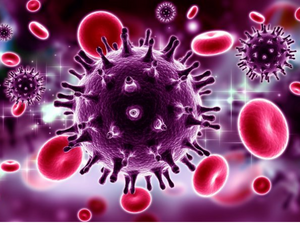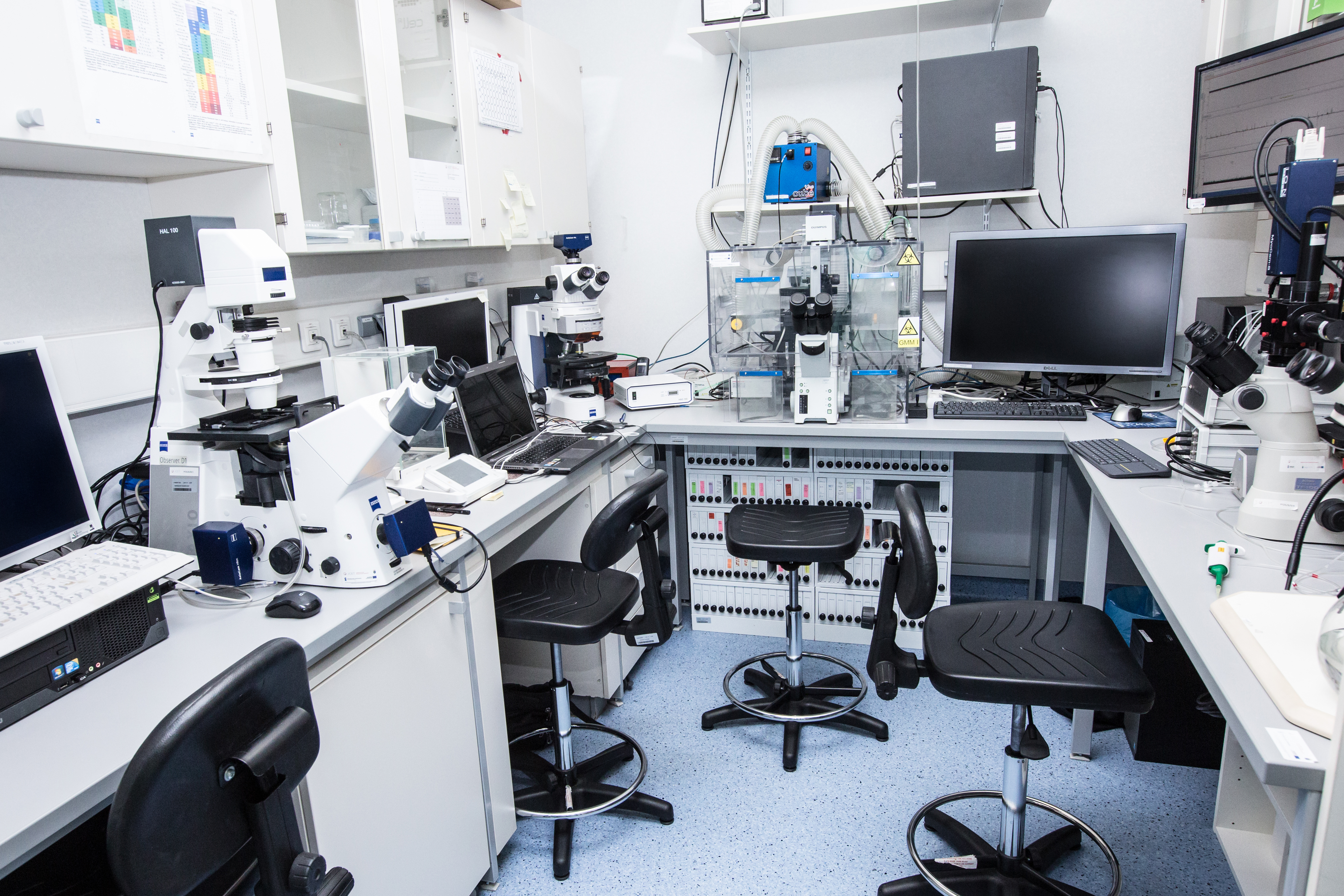
Pursuant to § 7 sections 1 and 3 of Resolution No. 91/IX/2021 of the Senate of the Jagiellonian University of 29 September 2021 on the rules of recruitment for the Doctoral School of Exact and Natural Sciences at the Jagiellonian University in the academic year 2022/2023, the Director of the Doctoral School of Exact and Natural Sciences announces a competition for one doctoral student with a scholarship financed from the research project funds as part of the Biomedical Sciences PhD study programme.
Within the NCN OPUS 23 project entitled: “Identification and characterization of novel players in HIV-1 RNA nuclear processing and export to dissect post-transcriptional blocks in latency”, a commission set up at the School will conduct recruitment for the Biomedical Sciences PhD study programme.
The project manager, dr Anna Kula-Pǎcurar offers an opportunity to complete the doctorate in the following area: “Identification and characterization of novel players in HIV-1 RNA nuclear processing and export to dissect post-transcriptional blocks in latency”.
After the interviews and the evaluation of the candidates, the Chairman of the committee presents a report to the Director containing a list of candidates recommended for admission to the school as part of the research project.
Project description:
HIV-1/AIDS since the pandemic onset in 1981 remains a major public threat with 36.3 million deaths and more than 38 million people living with HIV-1. Despite of a tremendous effort being made to combat the virus - we still do not have a cure. No vaccine exists but there is a potent antiretroviral therapy (ART) to control viral infection. However, ART does not cure the infection because virus become dormant (latent) and as such hides away from ART and immune recognition. Different strategies are being investigated to combat latency such as the so-called “shock-and-kill” approach that aims to wake up the virus (“shock” phase) to unmask it and makes it visible to the immune recognition and elimination (“kill” phase). Latency is a very complex phenomenon repressed not only by transcriptional but also less-characterized post-transcriptional mechanisms. Unfortunately, current “shock-and-kill” does not act on these post-transcriptional steps and this could be the reason why we cannot eliminate latency with this approach. Therefore, we need more basic studies to understand the post-transcriptional mechanisms controlling latency. Our previous studies and preliminary data highlight the existence of a novel post-transcriptional block in latently-infected cells from patients that hampers viral reactivation from latency.
The aim of this project is to further characterize this block using novel technologies such as CRISPR/Cas9-based genome-wide screens coupled with next-generation sequencing to shed light on the molecular mechanisms underlying post-transcriptional processes controlling HIV-1.
Results obtained within this research project will be important for proposing future therapies targeted on post-transcriptional steps to improve current inefficient “shock-and-kill” approaches to hopefully reach a cure.
Which methods we use:
- eukaryotic cell cultures
- in vitro and ex vivo models of HIV latency and reactivation studies
- transduction protocols, lentiviral production, GeCKO and CRISPR/dCas9 SAM library preparation
- RNA-protein and protein-protein interactions by confocal microscopy imaging (third generation RNA FISH coupled with immunofluorescence) and by biochemical assays
- CRISPR-Cas9
- RNA seq
Candidate’s profile:
- possesses an MSc degree in the field of biotechnology or related fields of life sciences,
- has great commitment and motivation to the research work being carried out,
- shows a good level of independence,
- has good knowledge in molecular biology techniques and virology,
- has good written and oral communication skills in English.
The conditions of employment:
- Scholarship for 48 months.
- Monthly salary: PLN 4500
- Scheduled start of work in the project: 1 April 2023
Schedule of the competition:
- Announcement on the School's website: 15.02.2023
- Opening of the competition (the on-line application system will be ready to use): 01.03.2023
- Application submission deadline: 05.03.2023, 3:00 PM
- Entrance exams: 09.03.2023
- Announcement of results: 15.03.2023
- Enrolment: 16-17.03.2023
- Enrollment (reserve list): 20.03.2023
Detailed terms and procedures of admission - tailored to the Biomedical Sciences PhD study programme (in the academic year 2022/2023):
In the event of exposure to harmful, noxious or hazardous factors, the applicant will, at the time of registration, be referred for a medical examination by an occupational medicine physician. The candidate shall be obliged to deliver, within the time limit set by the programme manager, a medical certificate confirming the absence of contraindications to take up education (applies only to some PhD study programmes).
Higher education diplomas awarded abroad should:
- bear an apostille clause if the issuing country is covered by the Convention abolishing the requirement legalisation for foreign public documents, done at The Hague on 5 October 1961 (Journal of Laws of 2005, No. 112, item 938) or
- be subjected to legalisation, in other cases.
Any document submitted in a language other than Polish or English must be accompanied by a certified translation into Polish or English.
Insurance:
Each doctoral student, including a foreigner, admitted to the doctoral school is obligatorily subject to health insurance if he/she is not covered by such insurance on other grounds (e.g. employment relationship, contract of mandate, business activity, insured as a family member under 26 years of age, as the spouse of an insured person). The health insurance contribution is paid by Jagiellonian University and is financed from the State budget. In addition, a doctoral student receiving a doctoral scholarship is subject to compulsory retirement and disability insurance and accident insurance.
IMPORTANT:
A person admitted to the doctoral school begins education and acquires doctoral student rights upon taking the oath. The Department of Personal Affairs reports each doctoral student admitted to the School to compulsory health and social insurance at the commencement of education. Until that time foreign candidates are obliged to cover the costs of insurance for the time of travel, treatment, etc. individually.
 Widok zawartości stron
Widok zawartości stron
Widok zawartości stron
Widok zawartości stron
 Widok zawartości stron
Widok zawartości stron
Widok zawartości stron
Widok zawartości stron
 Widok zawartości stron
Widok zawartości stron
Widok zawartości stron
Widok zawartości stron



